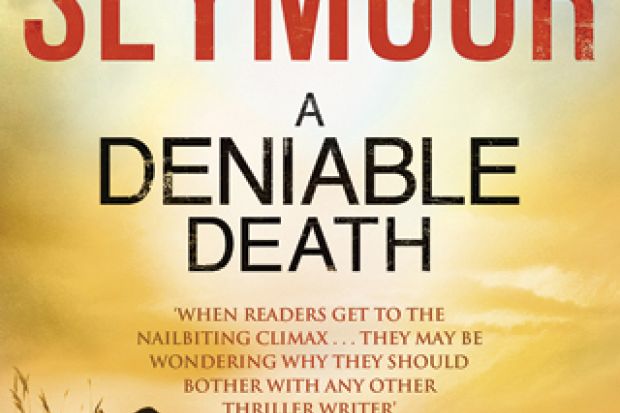Sir David Bell, vice-chancellor of the University of Reading, is reading Gerald Seymour’s A Deniable Death (Hodder, 2012). “After his incomparable first novel Harry’s Game, Seymour became one of Britain’s best thriller writers. Guerrilla warfare and intelligence battles were his signature themes, no more so than in this work. A long, drawn-out surveillance operation involving an Iranian bomb-maker reaches a dramatic climax on the streets of Germany. Understanding the ‘other side’ makes Seymour a cut above the average in the genre.”

Laurence Coupe, visiting professor of English, Manchester Metropolitan University, has just read Donna Tartt’s The Goldfinch (Abacus, 2013). “Initially put off by its length, I soon realised it was going to be as rewarding as my favourite monuments of fiction, whether by Dickens or by Dostoevsky. Its title alludes to a 17th-century painting of a bird chained to its perch: a work of art that dignifies, illuminates and redeems the life of such a fragile, suffering creature. Tartt’s novel does likewise in recounting the struggle of a contemporary American teenager to survive amid the chaos and cruelty of circumstance. Stunning.”

Stephen Halliday, panel tutor in history, Institute of Continuing Education, University of Cambridge, is reading George Orwell’s Seeing Things as They Are: Selected Journalism and Other Writings (Harvill Secker, 2014). “This collection of reviews, articles and broadcasts on subjects ranging from common lodging houses to an imaginary conversation with Jonathan Swift comes from one who sets the standards by which all journalists should judge themselves and find room for improvement. One of Orwell’s many virtues is his willingness to retract or modify opinions (usually gloomy ones) when they turn out to be wrong: a rare virtue, especially in that profession.”

June Purvis, professor of women’s and gender history, University of Portsmouth, is reading Mark Bostridge’s Vera Brittain and the First World War: The Story of Testament of Youth (Bloomsbury, 2014). “Brittain’s First World War memoir Testament of Youth, first published 82 years ago, told of love, loss and anguish following the death of young men close to her, including her fiancé Roland Leighton. This book, which re-examines the evolution of her text from novel to memoir, is published to accompany the recently released feature film about Brittain. A poignant and compelling read.”

Richard Sheldon, lecturer in social and economic history, University of Bristol, is reading Karl Polanyi’s For a New West: Essays, 1919-1958 (Polity, 2014). “Polanyi’s writings have been an enduring source of inspiration among unorthodox scholars and activists, lately including followers of the Greek anti-austerity party Syriza. This hugely interesting and varied collection includes essays, lectures and drafts on politics, history, economics and anthropology penned while on his odyssey from Budapest to New York in an age of revolutionary extremes.”
Register to continue
Why register?
- Registration is free and only takes a moment
- Once registered, you can read 3 articles a month
- Sign up for our newsletter
Subscribe
Or subscribe for unlimited access to:
- Unlimited access to news, views, insights & reviews
- Digital editions
- Digital access to THE’s university and college rankings analysis
Already registered or a current subscriber? Login

